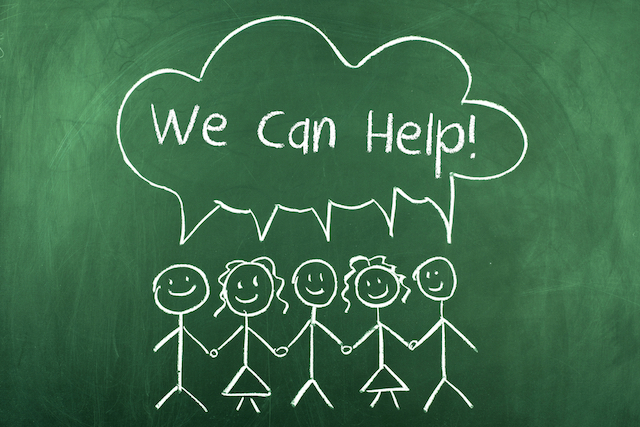Asking for Help: Remove the
Stigma

Welcome to What’s In the Middle! Today, I want to delve into an issue plaguing many people, myself included - the issue of help. Specifically, the issue of asking for help from others. Take me, for instance; one of the reasons my relationship has suffered is that I do not like to ask for help. I have recognised that this is not just an issue with my boyfriend but with pretty much everyone. I tried to take on everything myself, believing I could cope and didn’t need any help.
It was a balance of risk—the only person I could let down would be myself, so this felt like a risk worth taking. The other issue, which is more common, is that I believe asking for help came across as a weakness.
It was essential to ensure I was dependent upon myself and nobody else. I was a strong, confident woman who relied on myself and nobody else. And that was that! This is due a lot to my upbringing, with an emotionally distant, addicted father and a robust and self-reliant mother who never relied on anyone. It never occurred to me how much this would come to shape my life until now.
Business guru Gary Vanerchuk believes self-awareness is the most critical aspect of life and business. I certainly think he has a point here. My career as an entrepreneur could have been much less stressful and chaotic if I had asked for help at different points.
Why are we generally so reticent to seek help? Is it a fear of rejection? We may view it as a sign of weakness. Perhaps it is a bit of both. But why do so many things seem black and white? We need to do more to try to reach for the middle ground. For a sense of calm and balance. Finding the centre in life is a big part of what I’m trying to explore here with What’s In the Middle?
One of the positives of this global pandemic is that
people are opening up more and are more inclined to ask for help when needed. Whether it’s people struggling with mental health in
isolation or those who need help grocery shopping, we are reaching out to our
fellow citizens more than ever.
Indeed, reaching out has many advantages, and there are often plenty of people willing to offer or provide help. Leadership coach Nora Bouchard advises this approach: "Even if someone can’t help you, it’s still a good idea to talk to them. It may be that the person you’re talking to can’t help you themselves, but they know someone who can.”
We can all get better at asking for help, and Bouchard suggests that one of the best ways to do this is to start small. Like anything, baby steps are essential to begin with until you are more comfortable with it.
Think of the scenarios in your life where you can apply this approach and ask for help more. If you’re struggling with mental health, this is a necessity. But you might also find it improves your performance and understanding at work, and this comes with many excellent benefits.
Sure, boundaries are essential in this instance. You don’t want to feel like you owe someone a favour. Help is a two-way street, but there needs to be give and take on both sides for it to work. Not wanting to let people you're indebted to down is one of the big things that can put people off when asking for help.
We could all do more to improve the way we tackle problems, and asking for help is something we need to get better at. Do you guys have any examples of how the stigma of asking for help has impacted your life and how you got around it? Take the step this week of sitting down and coming up with two occasions in your life where you feel like you should ask for help and try to do it, and I will do the same! It will be interesting to see the impact of this moving forward.
This is my personal view, and I understand if you disagree.
Comments
Post a Comment
Feel Free to leave your feedback in the comment section !!!